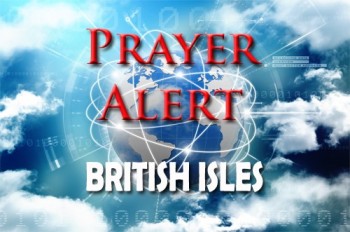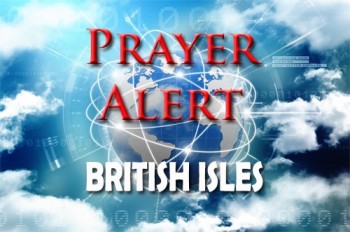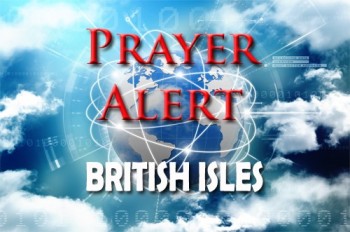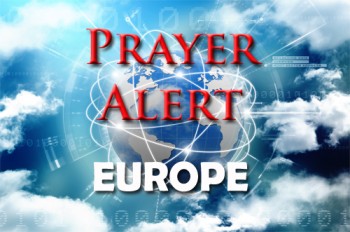Displaying items by tag: danger
Canary Islands volcano ‘much more aggressive’
The Canary Islands volcano has blown open two more fissures, and intense activity has worsened, three weeks after the original eruption. The prompt evacuation of more than 6,000 people since the 19 September eruption helped prevent casualties. By 3 October the lava had destroyed or partially destroyed 1,000+ buildings, including homes and farming infrastructure. By 7 October it had destroyed 21 miles of roads and entombed large areas of land, with no indication of lessening.
Afghanistan: winter and fatigue threaten
Many Afghan Christians have fled from cities to remote regions to escape Taliban detection; others are hiding in communities. World Mission’s Greg Kelley learned of a Christian leader caught by the Taliban, who publicly tortured and executed him. Continue to pray for Afghan believers, in hiding and meeting in secret locations. Now, with the borders to neighbouring countries closed, they have nowhere to turn. With winter approaching they face extreme difficulties. It is exceedingly difficult to get aid into Afghanistan to meet their needs. Many want to leave because they are known to the Taliban or other extremists. Ask God to protect them and help mission agencies to arrange for their safe escape. Things are changing dramatically in Afghanistan, and those who suffer the most are the weak and vulnerable. Pray for wise short-term strategies to address the needs of elderly, sick and frail refugees.
Pakistan to Afghanistan: Christian convoy
A convoy of 100+ Christians, including at least fifteen families, will leave Afghanistan to make a new life in Pakistan. It is not a hospitable country for Christians, but Afghanistan has become much worse with the Taliban in charge. Leaders of house churches have already received threatening letters from the Taliban, warning them that they know where they are and what they are doing. They are ‘on a list.’ The convoy is being led by a pastor who serves ten Afghan house churches. He was a Muslim until his life was turned around when someone shared the Gospel with him. The ages of the people in this convoy range from three months to 70 years. There are no buses, no trains running between Afghanistan and Pakistan: so this convoy will be taking, for lack of a better word, taxis. Ask God to give them strength and ask Him to frustrate the plans of any wanting to stop them.
Rash Christmas Covid rules
In a joint editorial, two leading medical journals have said the UK's plan to ease Covid rules over Christmas is a ‘rash decision’ that will ‘cost many lives’. They said people might see the lifting of restrictions ‘as permission to drop their guard’. However, Number 10 said it would not review plans to allow household mixing over Christmas. It is only the second time the two publications have written a joint editorial. Pray for people to understand the danger and keep social contact to a minimum over the five days of reduced restrictions.
Lebanon: Muslim convert witnesses for Jesus - despite risks
14-year-old Mohammed, a Muslim street child without parental supervision, attended a local Sunday school for the entertainment and free food. Then he was challenged to receive Jesus. He said, ‘I waited until I got home, then at 3:00 am I said, “Lord Jesus, please help me. I am desperate, helpless, hopeless. I cannot take it any more. I need you.” Then within half an hour I slept, and I woke up in the morning excited. I took one of the many New Testaments from Sunday school and put it in my school bag and went to school and started telling people about my experience.’ He was thrilled that he had found the answers to his troubling questions, not where he expected in Islam, but in Christianity, and he boldly told everyone about Jesus. This turned more than a few heads. God had a plan for his life; to read his wonderful story, click the ‘More’ button.
South Georgia: huge iceberg threatens wildlife
Experts from around the world are anxiously monitoring the world’s largest iceberg - the size of Devon - as it creeps close to the shores of South Georgia, putting the lives of thousands of seals, penguins and other wildlife at risk. It is travelling towards a wildlife haven, a breeding ground for over a million animals. It is estimated to weigh one trillion tons and is only 200 metres deep, so it can get much closer to land before running aground. It is travelling at 1mph. Dr Andrew Fleming from the British Antarctic Survey, which has two monitoring stations on South Georgia, said, 'The next two to three weeks are going to be key in deciding whether the berg will hit South Georgia or narrowly miss it. The fact that it is still in one piece is unusual; it is the biggest iceberg in the world right now, and probably in the top five ever.'
Church used as a cannabis farm
A URC church in Staffordshire, a Grade 2 listed building from 1820 next door to a primary school, had not been used as a place of worship for over twenty years. Then 400 cannabis plants were found growing inside. A police raid at the end of July uncovered the drugs, and a man has appeared in court. This is the second recent finding of a cannabis farm in an unused church as local communities are being overrun by illegal drugs. Fears of gang violence and muggings keep frightened residents at home. Open dealing on the street stirs parents’ fears for their children. Pray for God to help citizens and community groups to recognise the roles they can play helping authorities eradicate the problem. Pray also for addicts to receive support and help to find a path away from substance abuse.
Floods and disruption
At the time of writing (18 June - midday) Somerset media have reported torrential rain, flash floods, thunder, and lightning strikes in the last 24 hours, with more on the way. Pray for the owners of flooded homes and businesses, for those desperately laying sandbags against further flash floods, and for those experiencing power cuts and hazardous driving conditions as storms spread across the country. Other parts of England had torrential rainfall, and some houses were set alight by lightning. A local chamber of commerce in Gloucestershire said it was ‘heart-wrenching’ to see that shops which had just reopened after lockdown were now flooded.
Nigeria: killing ‘more dangerous than coronavirus’
‘The incessant killing is more dangerous than coronavirus’, said a community leader in central Nigeria recently. His reaction is one of several testimonies - frequently harrowing to read, let alone to have experienced - which feature in an Inquiry into the scale of death and destruction caused by conflict occurring along the Christian-Muslim fault line running across the ‘Middle Belt’ of Nigeria, Africa’s most populous nation. The inquiry, published on 15 June by the UK parliament, had been taking evidence since autumn 2018. Since the coronavirus pandemic, violence appears to have grown even as international media have been otherwise occupied. The report, Nigeria: Unfolding Genocide, said, ‘Violence has claimed the lives of thousands of people and displaced hundreds of thousands more, causing untold human and economic devastation and heightening existing ethno-religious tensions.’
Ukraine: wildfires dangerously close to Chernobyl
Wildfires are just over a mile from the defunct Chernobyl nuclear power plant and a disposal site for radioactive waste. Over 300 firefighters are working to contain the blaze. A toxic cloud rises within sight of the carcass of Chernobyl’s Unit 4 nuclear reactor, the site of the worst nuclear disaster in history. Greenpeace said that the fires were larger than Ukraine’s official estimates and could pose a health risk, saying, ‘A fire approaching a nuclear or hazardous radiation facility is always a risk’. Flames could reach abandoned vehicles at the former plant, causing mighty explosions and spreading toxic fumes and unleashing radiation into the ground near the reactors. The fumes could sweep across vast swathes of Poland, Belarus, Romania, Hungary, Slovakia and Moldova. All are vulnerable: see









